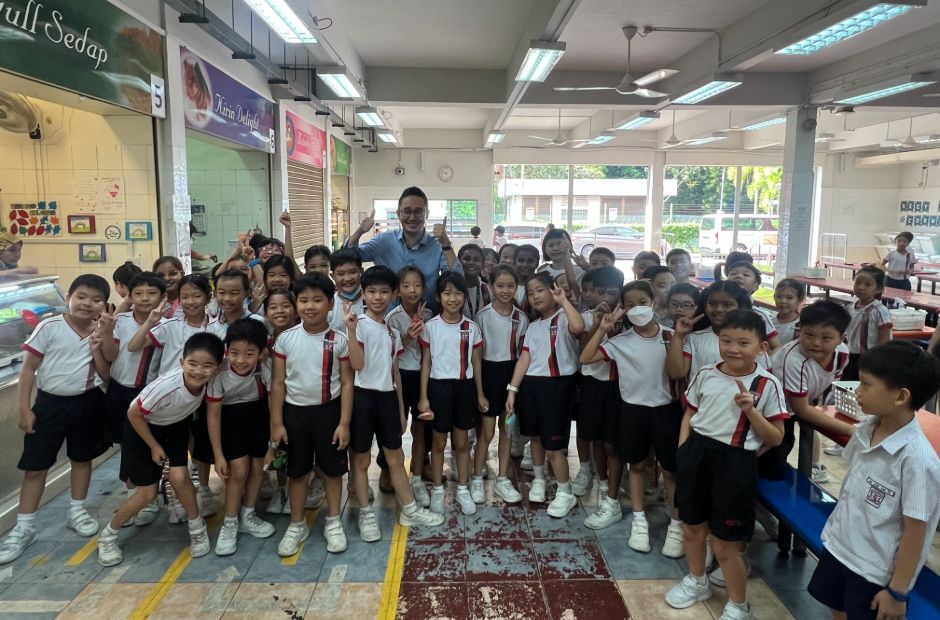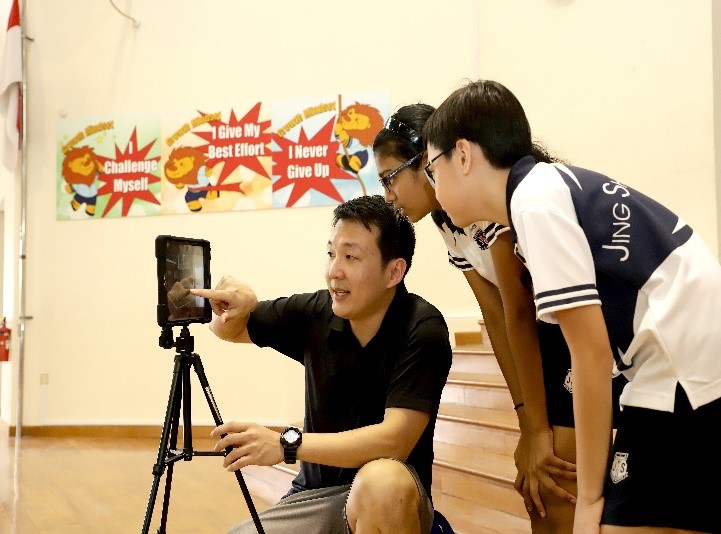Muhammad Andi Bin Mohammed Zulkepli, Zhenghua Secondary School, Outstanding Youth in Education Award 2018 finalist
A passion for language and culture
I vividly recall role-playing a Malay villager in a primary school Hari Raya skit, and acting as a pineapple in my Malay Language class. I had fun rehearsing my lines, figuring out my actions, and transforming vanguard sheets to create my pineapple costume. The highlight was overcoming my fear of performing in front of an audience as I was very shy in my student days.
As I grew older, my passion and interest in my mother tongue intensified. I involved myself in everything related to the language and culture – learning to play the kompang, writing poetry, taking part in debates, performing dikir barat, acting, and anything else I thought I must do as a Malay Language learner.
When I started teaching, I realised that my students did not have the same level of eagerness in learning our mother tongue. For most of them, Malay was no longer the dominant language used at home. Malay folk tales like Badang (Badang is the name of the protagonist), Bawang Putih Bawang Merah (White Onion Red Onion) and Lebai Malang (The Unfortunate Holy Man), which Malay Language learners of my generation would know, seemed distant to them.
I realised how blessed I was to have had Malay teachers who made my journey of learning the language a colourful and memorable one. They held inter-class language and essay-writing competitions. They gave my secondary school mates and myself the opportunity to participate in the national Malay debate competition, Bahas 4PM. They encouraged me to attend workshops and seminars, and I became more rooted in my language and culture.
Drama to the rescue
Seeking to arrest my students’ waning interest in the language, I worked with fellow Malay Language teachers to engage them through stories and drama.
We introduced the students to Malay folk tales and based on these folk tales, they created storyboards and scripts, developed acting skills, and eventually put up performances.
Drama also helped my students build character. Despite grappling with low self-esteem and confidence issues, a class of students took on the challenge of performing for an audience and they won an inter-class acting competition. The students were invited to showcase their performance at the 2016 Malay Language Month Celebration at the National Museum of Singapore. It was a small showcase, but it left me hugely satisfied to see my students developing greater confidence and becoming more appreciative of their language, literature and culture. It was a huge morale booster for all involved.
One student who benefitted in particular was Adli. He struggled with the Malay Language, but was fascinated by the culture. He was also interested in photography, but was unsure how to pursue his interest.
I gathered Adli and a few like-minded students one afternoon, and set up an ad-hoc student group under the Malay Language Unit called Misbah Minda, or “Shining Minds” to produce yearly newsletters in Malay. Adli found an avenue to develop his photography skills by contributing photographs of events as well as reporting on them for the newsletter.
Seeing how receptive Misbah Minda’s students were, I challenged them to plan and organise an annual Malay cultural event called Pesta Budaya. It would be a two to three-hour-long showcase of students’ talents, to be held in school. Adli and others came forward to lead their peers and I guided them by sharing the knowledge and skills I had picked up from my experiences as a member of Variasi Performing Arts, a non-profit arts organisation.
In time, they learnt the art of stage production and understood the roles of a producer, director, and stage manager, among others. They encouraged their friends from different cohorts and streams in the school to contribute any form of Malay performances for the cultural event and Pesta Budaya became a yearly success. Adli graduated with a passion for photography, and a deep appreciation for his language and culture.
The power to influence
Learning a language need not be mechanical. Beyond Pesta Budaya, some of my students have attended Roots! Arts Camp, a project that I have led at Variasi Performing Arts for the past few years, aiming to introduce Malay dance and theatre to our youth. I am pleased to see how it has inspired them to learn more about the Malay arts, and explore their hidden talents.
I believe what my Malay teachers did for me was to develop the jiwa Melayu or the Malay soul (spirit) of wanting to know and do “everything Malay” for the love of the language, literature, and culture. The next generation of Malay teachers like myself have an important duty to develop our students’ interest in our mother tongue. My greatest satisfaction comes from knowing that my students are in a position to pass on this interest to others.



.jpg)


